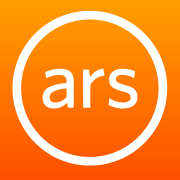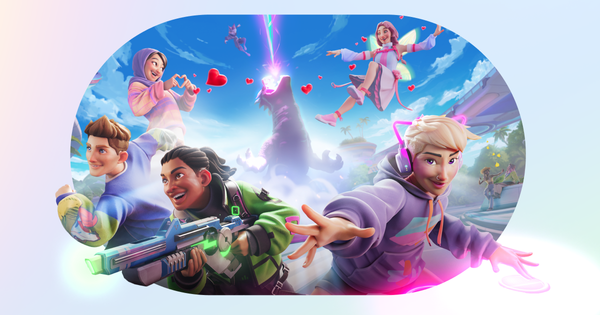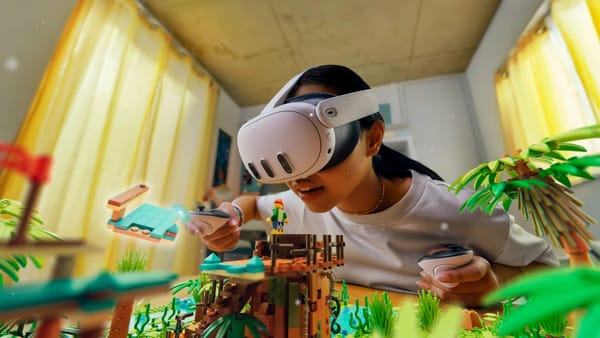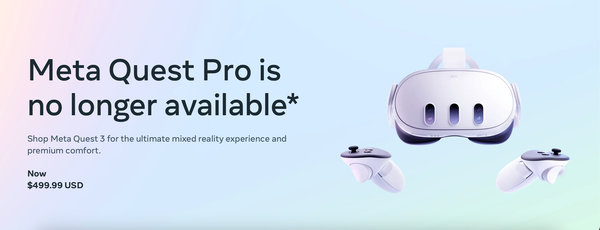XR Developer News - March 2024

Welcome to my monthly roundup of XR Developer News! For the first time since the beginning of the year, the XR world was not completely dominated by Apple Vision Pro news. Definitely a breath of fresh air to see so a bit of a balance between the two behemoths (Meta and Apple) and so much other stuff happening!
Meta Quest
For a change, let's start with Meta:
- Meta released v63 (release notes) of Quest OS, with some interesting updates (e.g. lying down mode) but nothing extremely notable to developers.
- There was some smaller news suggesting Meta might be changing its Unity-first focus a bit after last year's Unity pricing upheaval.
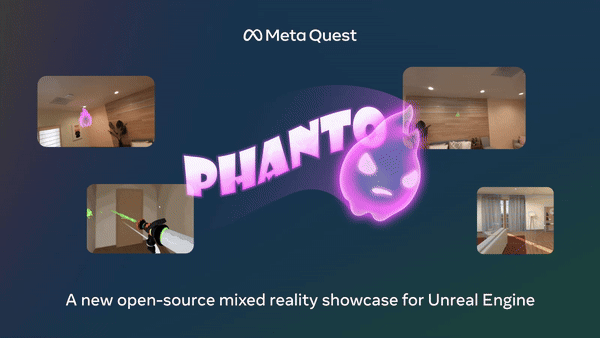
- A new Presence Platform hackathon was kicked off with a $30K prize pool. Full info is available here, with the submission deadline on May 13th. Judging will be done by a group of community figures, which are also publishing some video tutorials throughout the next few weeks (such as this, this, this, this and somewhat unrelated this).
- Unfortunately with the attention such a highly promoted hackathon will pull in, and the low number of separate categories and prizes (9, of which only 6 are cash prizes) the chance of winning is quite small. It would be nice if they added a few more honorable mention prizes, so there's a potential (small) pay off for a larger number of teams.

- Meta Quest Link was improved significantly, which might be beneficial to the workflow of Meta Quest developers.

- Meta organized a bunch of sessions at GDC 2024, although they are primarily recaps with no or little new information. It might be interesting to check them out if they become available publicly and are about a topic you're specifically interested in.
- There's a new funding opportunity by Meta called Oculus Publishing Ignition aimed at small teams of experienced developers which recently formed to build XR games.
- Meta is increasing the data collection it does on Quest devices. Although it currently concerns 'anonymized data about device usage', it's good to keep aware of and up to date on Meta's policies in this area.
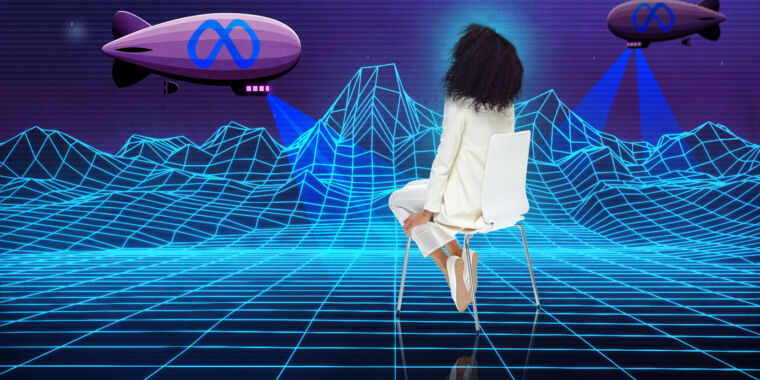
- As the Quest platform grows in user base, considerations like security vulnerabilities will start becoming more of an issue to keep an eye on as well.
- On the Meta Spark side of things, a few new videos were released (hidden world template, look at object block) together with v180 which contained a minor bugfix.
Apple Vision Pro
Of course, there was still plenty of Vision Pro news this month:
- Apple released visionOS v1.1 with some modest improvements, like (somewhat) better looking Personas and support for Mobile Device Management (MDM). Personally I found the ability to move Volumes in Shared Space closer than before the most interesting, as that changes what type of use cases Volumes are practical for. UploadVR has a detailed breakdown of the changes.
- As part of the 1.1 update, Apple has extended (in collaboration with the relevant standards bodies) WebXR in Safari to support the gaze-pointer-based interaction model of visionOS.

- The Vision Pro App Store can now be browsed from desktop web browsers, which should make finding interesting new apps and games a bit easier.
- Unity released v1.1 of its visionOS support (PolySpatial) including various improvements to Play to Device performance (allowing for quick developer iteration), shaders and materials. Detailed changelogs are available here, here, here and here.
SwiftUI inside Unity PolySpatial on Vision Pro
- There were a bunch of good webinars and podcasts about building for visionOS from various sources:
- A webinar by Unity with the maker's of LEGO Builder's Journey, which has some really high quality info, especially in the part starting around 42 minutes into the video.
- Unity also had a getting started webinar and a roundtable with amongst others the CEO of Owlchemy Labs. A bit less interesting than the LEGO webinar, but good both are resources if you have the time to check them out.
- XR Bootcamp had a really interesting webinar with the creators of Puzzling Places about their journey bringing that game to Vision Pro. This was another really interesting one with lots of invaluable in depth experience being shared. Definite recommendation.
- XR Bootcamp also had a roundtable webinar about Vision Pro and Meta Quest. This one had some nice nuggets here and there, but more one to check out if you have some spare time.
- One I actually missed last month, but was so interesting that I couldn't skip it in retrospect, was the interview by Kent Bye of the Voices of VR Podcast with a founder of one of the companies (VRvana) that Apple acquired and built the Vision Pro on. A fascinating and rare look into the history of Vision Pro.

- The date for VisionDevCamp has been set to March 29th to 31st.
Software updates
- Unity released v3.0 (changelog) of its XR Interaction toolkit and an experimental first version (v0.5.0) of Composition Layers.
- Unity's roadmap presentation at GDC contained a few minutes with a short update of its XR roadmap, around the 36:50 mark.
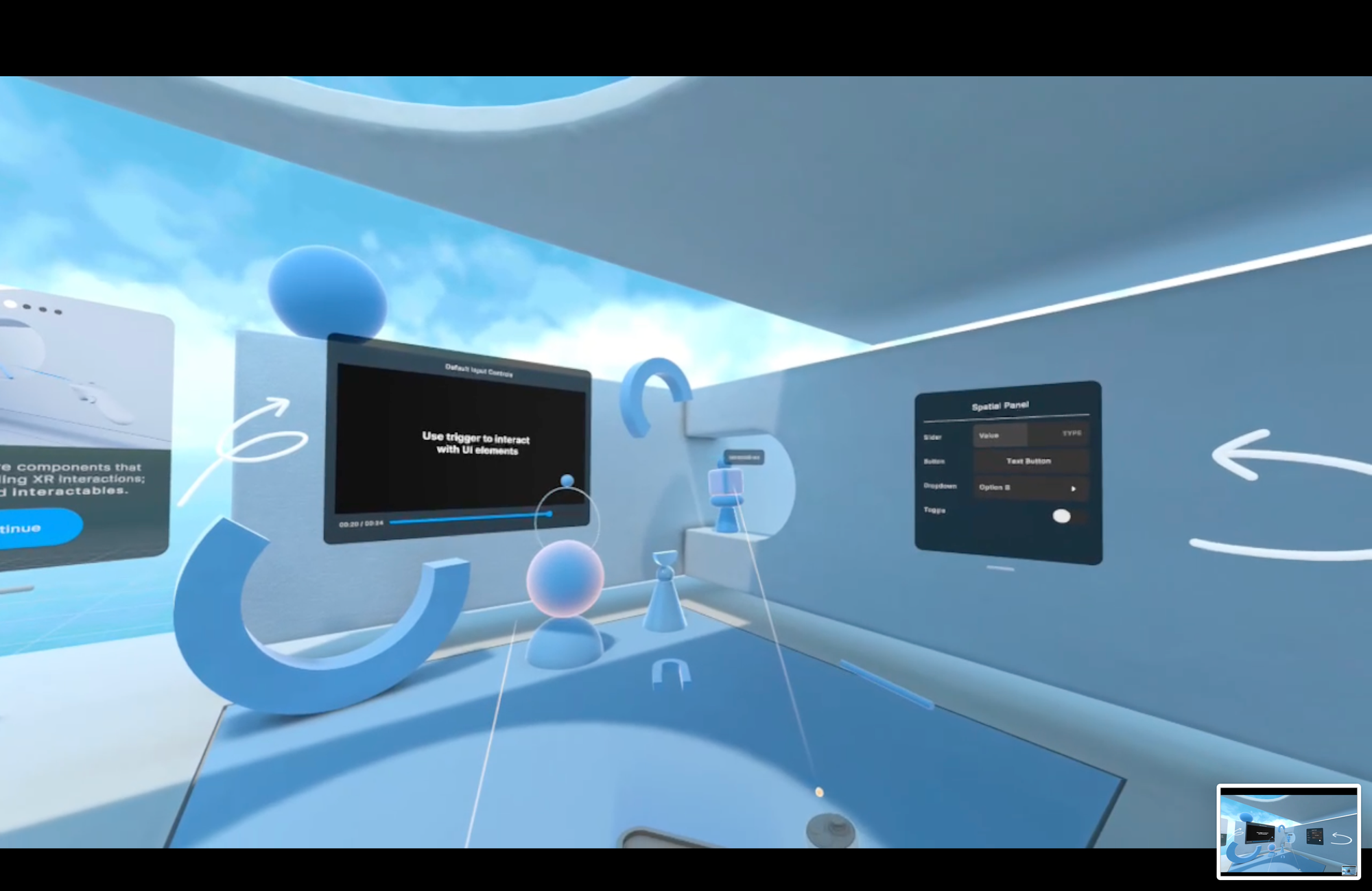
- Magic Leap released v1.6.0 of its OS and the related SDKs. The focus is on continuing its transition to an OpenXR foundation (see also a new video about this by Dilmer Valecillos), including by expanding the OpenXR features that are supported.
- They've also released a Magic Leap Spectator app for iOS which offers a way for other people in a room without a Magic Leap to view and record what those with the headset are doing.
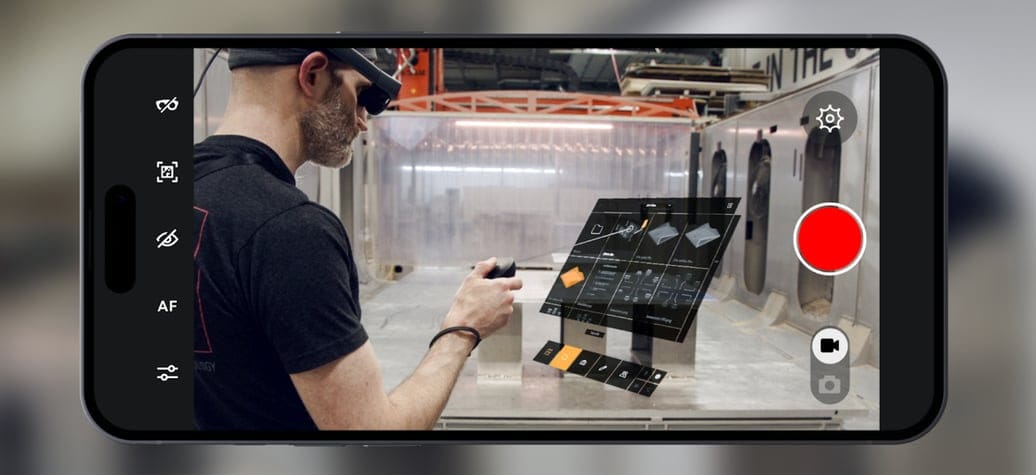
- TikTok released a public beta of its new Visual Effect Editor, which (like the Material Editor) is fully node-based. If you want to get an idea for how it works, a few intro videos are available. More information can be found in the documentation and a dedicated forum category.
- TikTok also released v3.9.0 of Effect House with some minor improvements and shared a few new template tutorials videos (blur, silhouettes, masquerade).
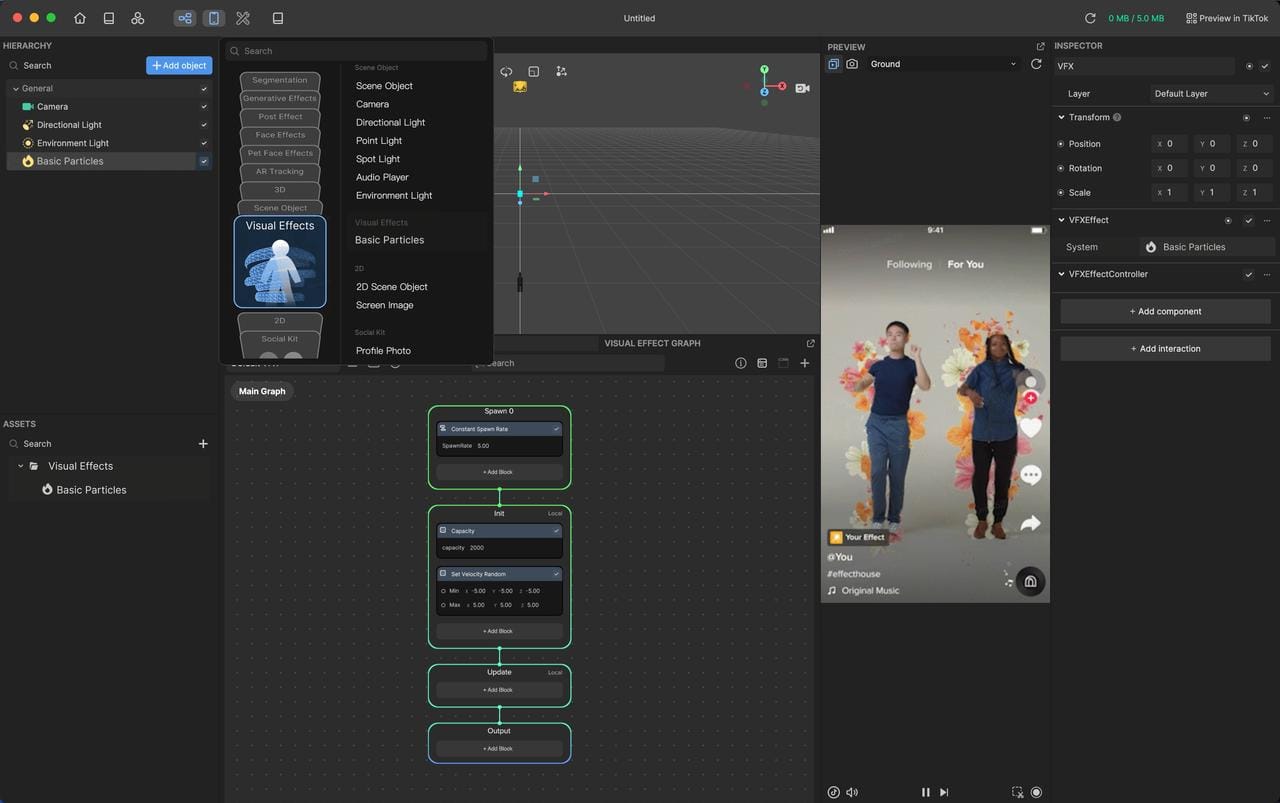
- Niantic is deprecating support for older versions (v2.x) of its Lightship ARDK on April 1, 2024, as it previously announced in October 2023. If you've got anything running on those older versions, you may want to consider migrating to v3.x.
- 8th Wall added support for Sky Effects to its Simulator, which should be helpful if you're developing an experience based on that feature.
- It also shared some examples of cross platform XR experiences running in the browser on mobile and Meta Quest headsets, using what 8th Wall calls Metaversal Deployment. While intriguing and an interesting look at the future, UploadVR tried the experiences and unfortunately found them suffering from lacking performance on the Quest headset.
.png?length=1500)
- three.js released v162.
- Pico, which has been going through a severe cutback in its investment in consumer XR, still shows some signs of life. It updated the OS of the Pico 4 to v5.9.0 (developer release notes, including a new Avatar SDK), which contains a bunch of improvements to various elements of the device. There are even rumors of an upcoming, somewhat updated model called the Pico 4S nearing release. Still, as a developer outside of China, I would be very hesitant to invest any significant effort into the platform, with the uncertainty about its future that surrounds it at the moment.
- Snap shared an update on the progress it has been making on its Lens Studio 5.0 beta.
- Snapdragon Spaces was updated to v0.21.0, with minor changes.
- PTC Vuforia released v10.22, with minor changes.
- Google released a small update (v1.42) of the ARCore Extensions and Geospatial Creator for Unity.
Other XR tidbits
- Epic Games detailed the per seat pricing ($1850 per seat per year) for Unreal Engine, which might become relevant to you if you're building an XR app on their game engine, and you're not in the gaming sector and reach a revenue threshold of $1 million.
- I think it makes sense that they're adding this pricing, because the types of experiences it targets (for example a professional industrial XR training for a highly niche audience) generally might not result in any revenue for Epic at the moment, while Epic offers a lot of value to the developers creating such experiences.
- At GDC Epic presented its State of Unreal, detailing news in various areas, such as Unreal Engine 5.4. Not really anything XR-specific, but it's always good to keep an eye on the evolution of Unreal Engine, as it's one of the core developer platforms in the XR space.
- The Lynx team shared another live stream update, which seemed to indicate that a funding announcement might be upcoming in the near future. It would be really welcome to have another viable competitor to Apple and Meta next to Google + Samsung and I'm really curious what they have in mind for their Lynx-R2 follow up headset, as their first Lynx-R1 was a very interesting mixed reality headset. Fingers crossed!
- At GDC, HTC shared that it is increasing the revenue share with developers in its Viveport store to 90%.
- Anyone considering developing for PlayStation VR2, I would suggest having another good look at whether that's smart, as more and more signs are popping up that the platform is struggling to gain traction in the market. The relatively high price for an accessory to a PS5 is definitely not helping.
- Polycam has added the ability to upload 3d models which were not created with its services and app, so you can now use it to share any model, similar to Sketchfab. My guess would be that it's an attempt to increase user retention of its service, as previously the logical user flow was to make one of the various types of scan it offers, export that scan and then continue working with it in other contexts (such as Sketchfab) for things like sharing.
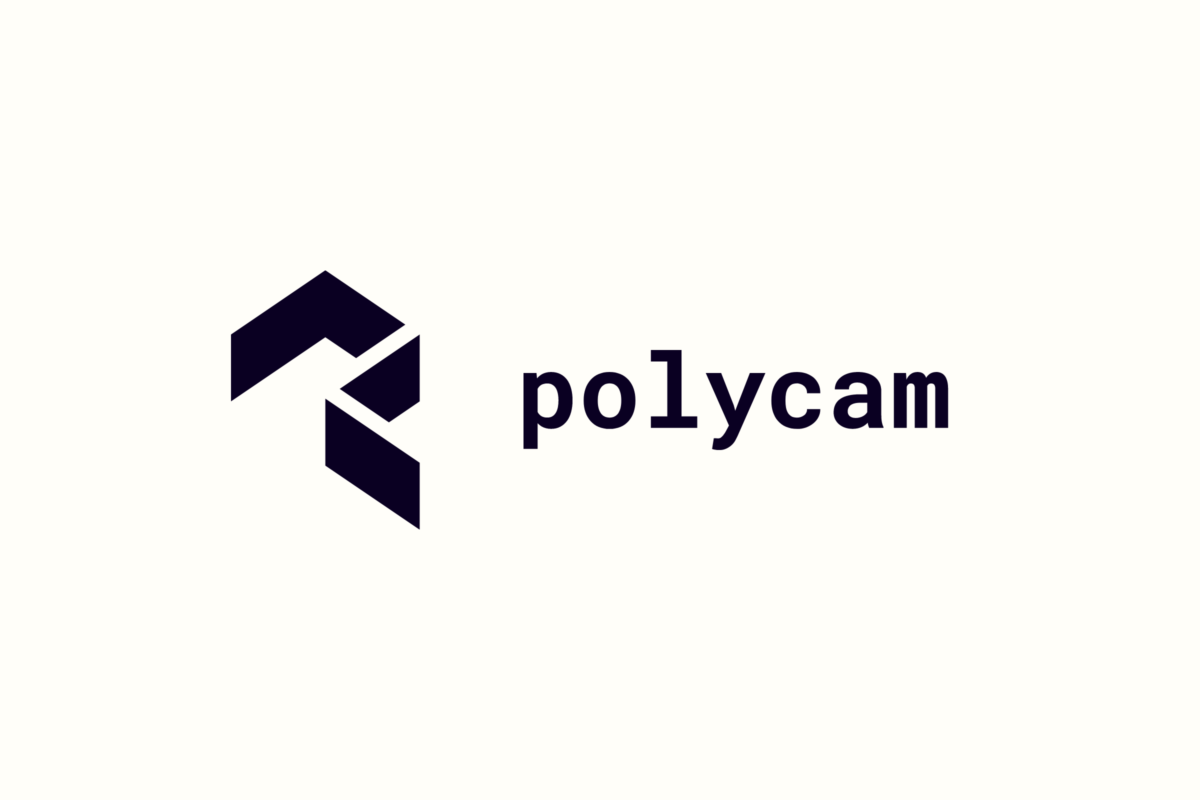
- I found ShapesXR's Gabriele Romagnoli's interview with Tony Bevilacqua, CEO of Cognitive3D, quite interesting. Their service offers XR native analytics, similar to how you would integrate something like Google Analytics in an app or website, but then specifically tailored to what you would like to learn about the usage of an XR app or game. These kinds of supporting services will start to become more and more relevant as the XR market matures and we go from the 'just get a thing out there' to data-driven optimization. Dilmer Valecillos also shared a (sponsored) video about Cognitive3D.
- ShapesXR, as XR-native design tool, is similar in the sense that it's one of those things you don't know you need until you're seriously building XR and have to professionalize your toolset. They've just released a few nice improvements.
- If you're into developing for WebXR/WebAR, Wonderland Engine might be an interesting thing to have a look at. It tries to offer a developer environment similar to Unity or Unreal, but focused fully on web as the target platform. Its founder recently gave a long podcast interview which gives good insight into what they're up to.
- Dilmer Valecillos shared a new (sponsored) tutorial video about Immersal.
- Scaniverse has added support for Gaussian Splatting. Quite interesting to see this impressive technique for capturing 3d spaces and object proliferate throughout the ecosystem. I wonder how common it will become.
Gaussian Splatting in Scaniverse
- If you enjoy this newsletter, I came across another one (XRealityZone) from China which covers similar topics, also in English. It's a bit less structured, sometimes even a bit chaotic in structure, but still has some interesting nuggets now and then (e.g. specific XR development tools or software libraries), so can be interesting to check out. They're even organizing a visionOS developer conference in Beijing at the end of March.
Upcoming XR events
- March 29th-31st, 2024 - VisionDevCamp - A prominent Vision Pro hackathon in the USA.
- April 10-12, 2024 - Laval Virtual, a long-running XR conference in Laval, France.
- May 13th, 2024 - Meta Quest Presence Platform Hackathon submission deadline.
- May 14th, 2024 - Google I/O developer conference, perhaps with news about the future Samsung Android XR headset.
- Beginning of June, 2024 - Likely date for Apple's yearly WWDC developer conference, at which a likely topic would be visionOS 2.0.
- June 18-20, 2024 - AWE USA - The mother of all XR conferences. If you've got an interesting topic, the deadline to apply as a speaker is February 28th. Super early bird rates end on March 14th.
A bit about this newsletter
Each month I try to round up all the interesting developments in the XR developer landscape. New hardware and software releases, hackathon, interesting tooling, etc.
The newsletter is starting to close in on 100 subscribers, which would be a really nice milestone, and I'm happy to report the first paid Supporter has joined (1% goal achieved for now. ;-) ). Thanks a lot!
I'm hosting this on ghost.io as a free newsletter. If it's a valuable service to you as a reader though, and you'd like to support me, you can subscribe as a Supporter at €5 per month and I would really appreciate it!
Feel free to reach out to me on LinkedIn, for instance if I missed anything which definitely should be in this monthly round up next time.
